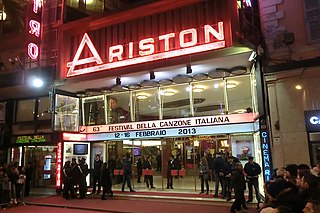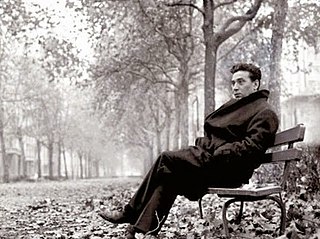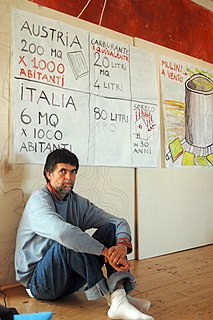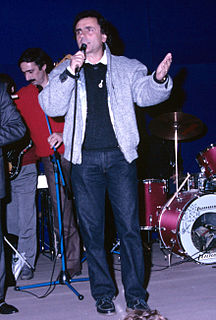Related Research Articles

Dario Luigi Angelo Fo was an Italian actor, playwright, comedian, singer, theatre director, stage designer, songwriter, painter, political campaigner for the Italian left wing and the recipient of the 1997 Nobel Prize in Literature. In his time he was "arguably the most widely performed contemporary playwright in world theatre". Much of his dramatic work depends on improvisation and comprises the recovery of "illegitimate" forms of theatre, such as those performed by giullari and, more famously, the ancient Italian style of commedia dell'arte.

The Festival della canzone italiana di Sanremo is the most popular Italian song contest and awards ceremony, held annually in the town of Sanremo, Liguria, and consisting of a competition amongst previously unreleased songs. Usually referred to as Festival di Sanremo, or outside Italy as Sanremo Music Festival, it is the music equivalent to the Premio Regia Televisiva for television, the Premio Ubu for stage performances, and the Premio David di Donatello for motion pictures.

Tommaso Landolfi was an Italian author, translator and literary critic. His numerous grotesque tales and novels, sometimes on the border of speculative fiction, science fiction and realism, place him in a unique and unorthodox position among Italian writers. He won a number of awards, including the prestigious Strega Prize.

Mario Rigoni Stern was an Italian author and World War II veteran.

Elio e le Storie Tese, often abbreviated EelST, was an Italian comedy rock band from Milan, formed in 1980. Its leader was Stefano Belisari, better known as Elio. They announced their split on 17 October 2017, on Italian TV program Le Iene.
Laura Orvieto, born Laura Cantoni, was a Jewish Italian writer.

Franca Rame was an Italian theatre actress, playwright and political activist. She was married to Nobel laureate playwright Dario Fo and is the mother of writer Jacopo Fo. Fo dedicated his Nobel Prize to her.
Barra is an eastern quarter of Naples, southern Italy, with a population of some 40,000 inhabitants

Marco Paolini is an Italian stage actor, theatre director, dramaturge and author.
Fabio Pusterla is a Swiss translator and writer in Italian.
The Pope and the Witch is a satirical play by Dario Fo, first performed in 1989. It depicts the Pope as a paranoid, drug-addled idiot and the Vatican as corrupt.

Massimo Montanari, currently Professor of Medieval History at Bologna University, is a scholar in Food studies. His interest in the subject stems from his researches and studies in Medieval Agrarian History. He has been invited as visiting professor to a number of leading universities in Europe, Japan, the United States, Mexico and Canada.

Luciano Bianciardi was an Italian journalist, translator and writer of short stories and novels.
Pietro Trifone, is an Italian linguist.
The Tale of a Tiger is a dramatic monologue by Dario Fo. Fo collected material for it during a June 1975 visit to China with his wife Franca Rame and other members of their theatre company, and he toured around Italy with it in 1978.
Mistero buffo is Dario Fo's solo pièce célèbre, performed across Europe, Canada and Latin America from 1969 to 1999. It is recognised as one of the most controversial and popular spectacles in postwar European theatre and its broadcast in Italy prompted the Vatican to denounce it as "the most blasphemous show in the history of television".
The Tumult of Bologna is a historical fiction monologue by Italian writer Dario Fo.

Jacopo Fo is an Italian writer-actor and director. He is the son of playwrights Franca Rame and Dario Fo.

Toni Santagata, stage name of Antonio Morese is an Italian folk singer, composer, comedian and actor. He is sometimes credited as Tony Santagata or Alfonso Santagata.

Chiara Frugoni is an Italian historian and academic, specialising in the Middle Ages and church history. She was awarded the Viareggio Prize in 1994 for her essay, Francesco e l'invenzione delle stimmate.
References
- ↑ "Storia di una tigre e altre storie". Eclap: e-library for performing arts. Retrieved 1 August 2012.
- ↑ Mitchell 1999, p. 195
- ↑ Fo, Dario. The First Miracle of the Infant Jesus, trans. Ed Emery, Oberon Books, London, 1990. Online version at http://www.geocities.ws/dariofoarchive/jesus.html Retrieved 5 August 2012.